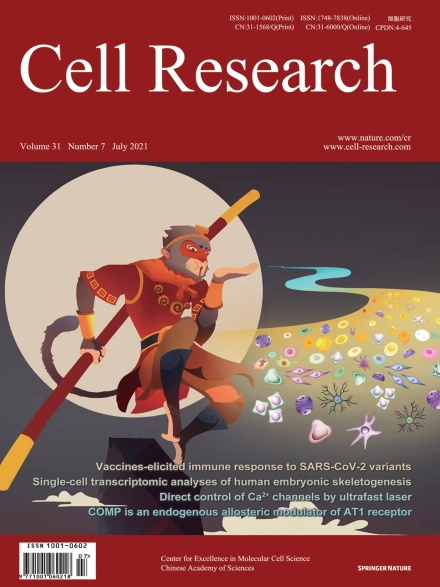
Advanced Search
Submit Manuscript
Advanced Search
Submit Manuscript
Volume 31, No 7, Jul 2021
ISSN: 1001-0602
EISSN: 1748-7838 2018
impact factor 17.848*
(Clarivate Analytics, 2019)
Volume 31 Issue 7, July 2021: 814-817 |
Dominant mutations in CHK1 cause pronuclear fusion failure and zygote arrest that can be rescued by CHK1 inhibitor
Honghui Zhang1,2,3,4 , Tailai Chen5,6 , Keliang Wu1,2,3,4 , Zhenzhen Hou1,2,3,4 , Shigang Zhao1,2,3,4 , Chuanxin Zhang1,2,3,4 , Yuan Gao1,2,3,4 , Ming Gao1,2,3,4 , Zi-Jiang Chen1,2,3,4,5,6,* , Han Zhao1,2,3,4,*
1Center for Reproductive Medicine, Cheeloo College of Medicine, Shandong University, Jinan, Shandong, ChinaDear Editor,
Infertility poses a major challenge to human reproductive health, affecting approximately 48 million women worldwide.1 Assisted reproductive techniques (ART), including in vitro fertilization (IVF) and intracytoplasmic sperm injection (ICSI), enable infertile women to have their biological embryos in vitro and further give birth to babies after embryo transfer. However, about 10% of all human embryos produced by ART are blocked in the early embryonic stage2 and approximately 2% fertilized oocytes derived from ART could not accomplish the first cell division.3 About one half of human infertility cases involve an underlying genetic factor, although the majority of genetic causes have remained elusive.4 In this study, we report that dominant mutations in CHK1 are responsible for pronuclear fusion failure and zygote arrest (PFF-ZA) in 7 out of 29 cases, likely through increasing the CHK1 activity. Importantly, PFF-ZA caused by these mutations could be effectively rescued by using the CHK1 inhibitor, PF477736.
https://doi.org/10.1038/s41422-021-00507-8